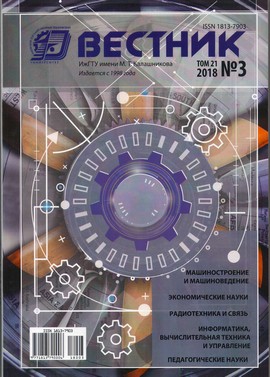Принципы целенаправленной практики в профессионально-иноязычной подготовке студентов технического вуза
DOI:
https://doi.org/10.22213/2413-1172-2018-3-209-212Ключевые слова:
целенаправленная практика, профессионально-иноязычная подготовка, студенты технического вуза, блог, представление, английский языкАннотация
Современные условия, которые характеризуются экономической нестабильностью и необходимостью межкультурных коммуникаций, накладывают на выпускников технических вузов новые, более высокие требования. Необходимость формирования у студентов технических вузов умения использовать иностранный язык для решения профессиональных задач побуждает ученых и педагогов искать оптимальные для достижения этой цели методики обучения. Одной из таких методик, успешно использующихся в различных областях, но не внедрявшихся ранее в профессионально-иноязычную подготовку студентов, является целенаправленная практика. Данная статья предназначена для ознакомления с этой методикой, а также для обоснования целесообразности рассмотрения профессионально-иноязычной подготовки студентов технического вуза как целенаправленной практики. Раскрываются основные принципы этой методики: наличие личной цели, высокая концентрация, обратная связь, выход из зоны комфорта и акцент на практической деятельности. Также определяется роль, которую мысленные представления играют в формировании профессиональной иноязычной компетенции. В заключение предлагаются апробированные и доказавшие свою эффективность модель и технология организации самостоятельной работы студентов, основанные на ведении ими англоязычных блогов по профессиональным темам и соответствии этой деятельности принципам целенаправленной практики. Описан процесс ведения студентами технического вуза профессионально ориентированных блогов на английском языке, рассмотренный в соответствии с принципами целенаправленной практики и реализованный ранее в рамках проведенного педагогического эксперимента. Делается вывод о необходимости применения этой методики к решению других задач по оптимизации профессионально-иноязычной подготовки студентов технических вузов.Библиографические ссылки
Пономаренко Е. П., Ахметзянова Г. Н. Психолого-педагогическое сопровождение иноязычной подготовки студентов технического вуза: сущность и структура // Перспективы науки. 2017. №. 11. С. 123-126.
Ericsson K. A., Krampe R. T., Tesch-Römer C. The role of deliberate practice in the acquisition of expert performance. Psychological review, 1993, vol. 100, no. 3, pp. 363.
Ericsson A., Pool R. Peak: Secrets from the new science of expertise. Houghton Mifflin Harcourt Publ., 2016.
Csikszentmihalyi M. Flow and the psychology of discovery and invention. New York, Harper Perennial Publ., 1997.
Гареев А. А., Шихова О. Ф., Шихов Ю. А. Организация самостоятельной работы студентов на основе учебных блогов // Образование и наука. 2018. Т. 20, №. 3. С. 117-139.
Сысоев П. В. Блог-технология в обучении иностранному языку // Язык и культура. 2012. Т. 4, № 20. С. 115-127.
Blood R. The weblog handbook: Practical advice on creating and maintaining your blog. Basic Books Publ., 2002. 144 p.
Bloch J. Abdullah’s blogging: A generation 1.5 student enters the blogosphere. Language Learning & Technology, 2007, vol. 11, no. 2, pp. 128-141.
Pérez-Sabater C., Montero-Fleta B. ESP vocabulary and social networking: The case of Twitter. Ibérica, 2015, no. 29, pp. 129-153.
Гареев А. А., Шихова О. Ф., Шихов Ю. А. Организация самостоятельной работы студентов на основе учебных блогов // Образование и наука. 2018. Т. 20, №. 3. С. 117-139.


